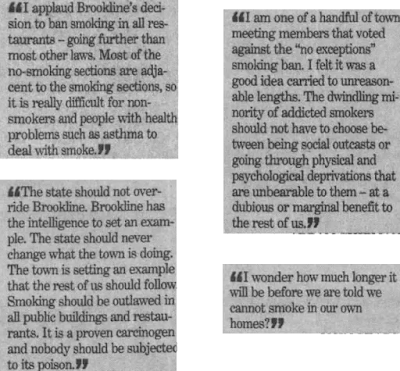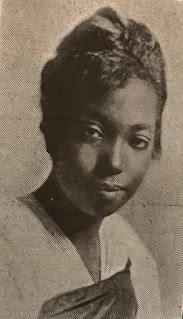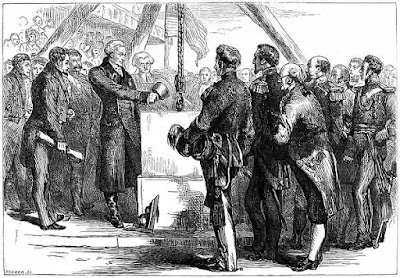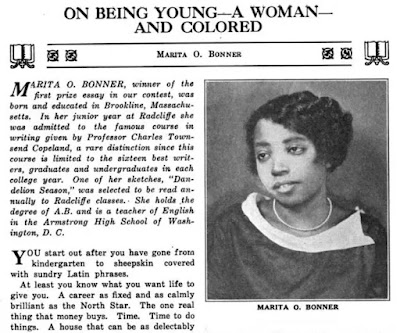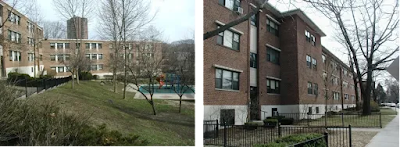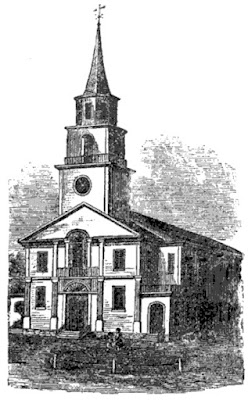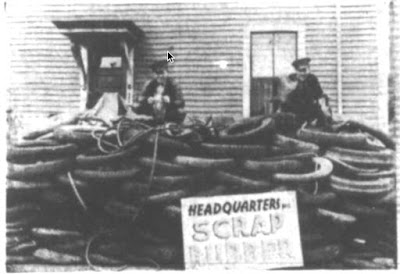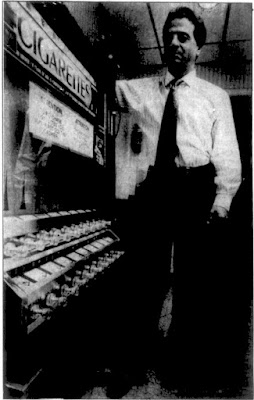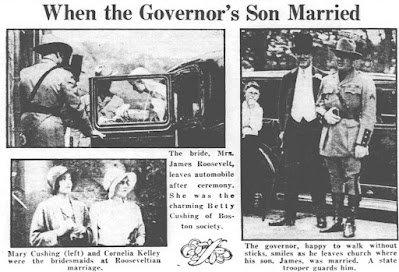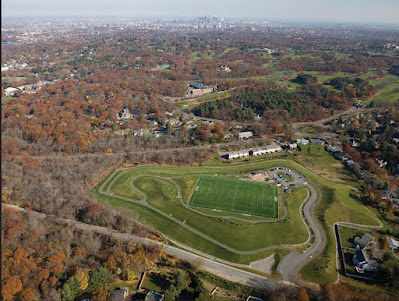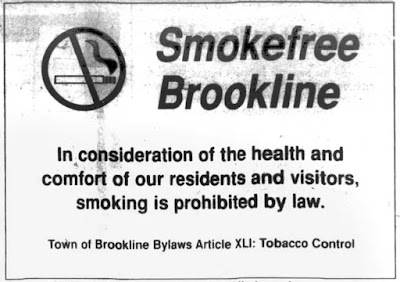 |
| July 1, 1994 |
June 25, 1871 - American Colonization Society meeting
June 29, 1907 - Agnes Nolan marries George M. Cohan
June 26, 1917 - Brookline suffragist arrested at White House
July 1, 1994 - Smoking banned in restaurants
June 25, 1871
American Colonization Society meeting
A meeting of the American Colonization Society, which supported the colony of African Americans in Liberia in West Africa, took place at the Harvard Congregational Church at the corner of Washington and School Streets in Brookline Village.
 |
| The Harvard Congregational Church. The cornerstone for a new church, now United Parish, was laid a few weeks after this particular meeting took place. |
The meeting was noted in the Society's newspaper, The African Repository. Ministers from the Baptist and Episcopal churches who were scheduled to participate withdrew due to what would be described today as "scheduling conflicts." The meeting was largely focused on Liberia as a wedge for Christianity in Africa.
The Society, formed in the 1820s to encourage migration of free Blacks and enslaved African Americans released from bondage, was controversial almost from its beginning. Abolitionists like William Lloyd Garrison and Gerrit Smith, though initially supportive, came quickly to see it as a "sham reform" designed to undercut the abolition movement and rights of African Americans in the U.S.
June 29, 1907
Agnes Nolan marries George M. Cohan
Agnes Nolan, part of a large Brookline family and a member, along with three of her sisters, of George M. Cohan's theater company, became Cohan's wife in a ceremony performed by a justice of the peace in New Jersey.
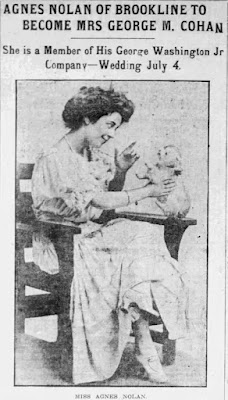 |
| This April 1907 article in the Boston Globe announced a planned Fourth of July wedding for George M. Cohan and Agnes Nolan. The wedding ended up taking place a few days earlier than scheduled. |
Agnes's sister Alice and Cohan's long-time partner, producer Sam Harris, were the only witnesses. Alice Nolan and Sam Harris would marry later that year, and the two couples would build adjacent homes in Great Neck on Long Island.
Three of the Nolan sisters, daughters of a Brookline post office worker and his wife, had performed together under the stage name of the Merrill Sisters before joining Cohan's company. Agnes Cohan, conforming to the wishes of her husband and her parents, retired from the stage after her marriage. She and Cohan had a son and two daughters. She outlived her husband by more than 30 years, dying at the age of 89 in 1972.
June 26, 1917
Brookline suffragist arrested at White House
25-year -old Katherine Morey and her colleague Lucy Burns became the first women arrested at the White House amid ongoing suffrage protests aimed at President Woodrow Wilson. The two women turned Wilson's own words against him with a banner quoting the president's call from a speech about U.S. support for the allies in World War I.
"We will fight for the things we have always held nearest our hearts--for democracy--for the rights of those who submit to authority to have a voice in their own government."
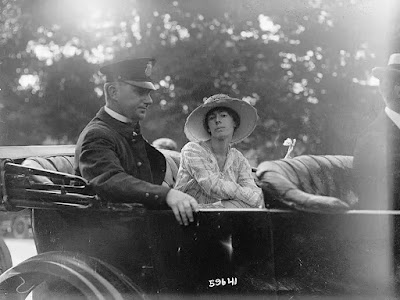 |
| Katherine Morey after being arrested at the White House |
Morey and her mother Agnes had been among 23 women who traveled across the United States the previous year as part of a "suffrage special" in support of the right of women to vote. (See TWIBH April 9th-April 15th for more on that action.)
July 1, 1994
Smoking banned in restaurants
Ten years before a statewide ban went into effect, Brookline prohibited smoking in restaurants in town. The prohibition, passed by Town Meeting the previous November, survived court challenges and efforts to loosen the restriction.
Signs indicating a restaurant was smoke-free, like the one at the top of this post, were provided by the town. The new smoking bylaw also outlined further restrictions that would gradually be phased in. These included prohibitions on smoking in taxis and in hotels, motels, and inns in the town.
A Boston Globe request for feedback on the ban -- "Do you favor a 'no exceptions' ban on smoking in all bars and restaurants [in Masssachusetts]?" -- showed more than 80% in favor of a statewide ban like the one in Brookline. The Globe shared a selection of comments from readers, including the pro and con sentiments shown below.
